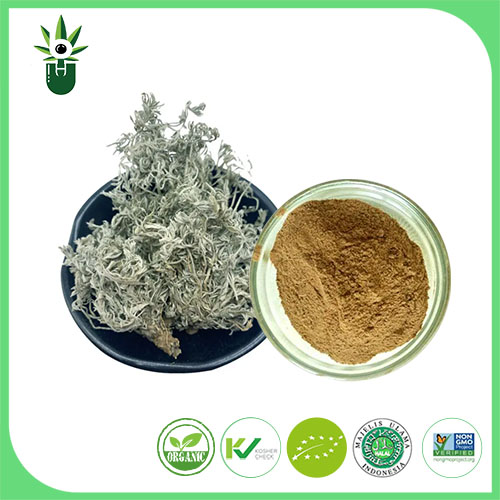How Can Plant Essential Oils Enhance Your Well-Being and Daily Life Naturally?
2025-02-20
Plant essential oils have become a cornerstone of holistic wellness, offering a natural and effective way to improve both physical and emotional health. Extracted from various parts of plants, including leaves, flowers, roots, and seeds, these oils have been used for centuries across cultures. But how can plant essential oils truly elevate your well-being and daily routine?
What Are Plant Essential Oils?
Plant essential oils are concentrated extracts derived from aromatic plants through processes like steam distillation or cold pressing. These oils capture the plant’s essence, including its fragrance and therapeutic properties. Popular examples include lavender, eucalyptus, tea tree, and peppermint oils.
Each oil offers unique benefits, making them versatile tools for enhancing overall wellness. Whether you're seeking relaxation, energy, or physical relief, there's likely an essential oil that suits your needs.
How Do Plant Essential Oils Work?
The magic of essential oils lies in their interaction with the body through two primary methods:
1. Aromatherapy:
When inhaled, the aromatic compounds in essential oils stimulate the olfactory system, which is closely connected to the brain’s limbic system. This area controls emotions, memory, and mood, which is why certain scents can help you relax, focus, or uplift your spirits.
2. Topical Application:
Essential oils can be absorbed through the skin, allowing their active components to work on localized areas or enter the bloodstream. Always dilute essential oils with a carrier oil like coconut or jojoba oil to prevent skin irritation.
What Are the Benefits of Plant Essential Oils?
Plant essential oils offer a wide range of benefits that cater to both physical and emotional well-being. Here are some of the most common advantages:
1. Stress Relief and Relaxation:
Oils like lavender and chamomile are known for their calming properties, making them perfect for reducing stress, anxiety, and promoting better sleep.
2. Energy and Focus:
Citrus oils such as lemon and orange, as well as peppermint, are invigorating and can help improve concentration and boost energy levels.
3. Pain Relief:
Essential oils like eucalyptus and ginger have anti-inflammatory and analgesic properties, making them effective for soothing sore muscles and joint pain.
4. Immune Support:
Tea tree oil and eucalyptus oil are known for their antimicrobial properties, which can help boost your immune system and protect against infections.
5. Skincare and Beauty:
Oils like rosehip, frankincense, and tea tree are often used in skincare routines to reduce blemishes, hydrate the skin, and fight signs of aging.
6. Natural Home Cleaning:
Many essential oils, such as lemon and tea tree, have antibacterial properties, making them excellent for creating natural cleaning products.
How Can You Use Plant Essential Oils in Daily Life?
Incorporating essential oils into your daily routine is simple and rewarding. Here are a few practical ways to get started:
1. Diffusion:
Use a diffuser to fill your home or workspace with the therapeutic aroma of essential oils. This method is great for relaxation, focus, or creating a pleasant environment.
2. Massage:
Mix essential oils with a carrier oil and apply them to your skin for a soothing massage. This is especially effective for stress relief or easing muscle tension.
3. Bath Soak:
Add a few drops of essential oil to your bathwater for a relaxing and aromatic experience. Lavender or chamomile oils are excellent choices for this.
4. Skincare:
Enhance your beauty routine by adding a drop of essential oil to your moisturizer or serum. Tea tree oil works wonders for acne-prone skin, while rosehip oil hydrates and rejuvenates.
5. Inhalation:
For quick relief, apply a drop of essential oil to a tissue or your palms, then inhale deeply. Peppermint is particularly effective for clearing nasal passages.
6. Natural Cleaning:
Combine essential oils with vinegar or baking soda to create non-toxic cleaning solutions for your home. Lemon and tea tree oils are great for disinfecting surfaces.
Are Plant Essential Oils Safe?
While plant essential oils offer numerous benefits, it’s important to use them safely:
- Dilution: Always dilute essential oils before applying them to your skin to avoid irritation.
- Patch Test: Perform a patch test to ensure you don’t have an allergic reaction.
- Avoid Ingestion: Unless directed by a professional, do not ingest essential oils.
- Proper Storage: Store oils in a cool, dark place to maintain their potency.
- Consult a Professional: If you are pregnant, nursing, or have specific medical conditions, consult a healthcare provider before using essential oils.
Why Are Plant Essential Oils So Popular?
The growing popularity of plant essential oils can be attributed to their natural origins, versatility, and effectiveness. In an era where people are seeking cleaner and greener alternatives, essential oils provide a sustainable and chemical-free solution for wellness, beauty, and even household needs.
Conclusion
Plant essential oils are much more than aromatic compounds. They are powerful tools that can enhance your well-being, reduce stress, and bring natural solutions to everyday challenges. By incorporating them into your life, you can experience the transformative power of nature in a simple yet effective way.



